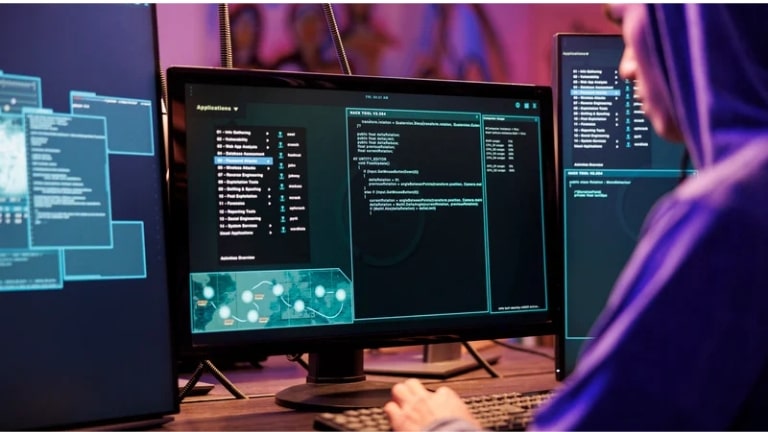The world of coding has never been more accessible, with countless resources available to help beginners develop the skills needed to thrive in the digital age. Whether you’re looking to build websites, create mobile apps, or delve into data science, coding tutorials can provide a structured way to learn at your own pace. Here’s a guide to help you understand the best approach to coding tutorials for beginners, and how to make the most of them.
Why Learn Coding?
In today’s tech-driven world, coding is a highly valuable skill. Even if you’re not pursuing a career in software development, understanding the basics of programming can enhance problem-solving skills, foster creativity, and open doors to new opportunities in various industries. For beginners, learning how to code can seem intimidating at first, but with the right resources and mindset, it’s entirely achievable.
Choosing the Right Programming Language
The first step for beginners is selecting a programming language. Each language has its own purpose, and choosing the right one depends on what you aim to achieve. Here are some beginner-friendly languages to consider:
- Python: Known for its simplicity and readability, Python is a great starting point for beginners. It’s widely used in web development, data science, automation, and artificial intelligence.
- JavaScript: If you’re interested in web development, JavaScript is essential. It runs in the browser and enables interactive websites, making it a key tool for front-end and back-end development.
- HTML/CSS: While not programming languages in the traditional sense, HTML and CSS are the building blocks of the web. They allow you to create and style websites, and they’re easy to learn.
- Scratch: A visual programming language designed for children and beginners. Scratch simplifies coding concepts and provides an excellent introduction to logic and algorithms without the need for complex syntax.
Best Platforms for Coding Tutorials
The internet is filled with coding tutorials, and it can be overwhelming to choose the right one. Here are some of the top platforms that offer beginner-friendly tutorials:
- Codecademy: Known for its interactive platform, Codecademy offers step-by-step lessons in various programming languages. It’s great for beginners because it allows you to write code directly in the browser and see immediate results.
- freeCodeCamp: This non-profit organization offers a wealth of free coding tutorials that focus on web development. Their hands-on curriculum includes real-world projects, making it an excellent choice for beginners who want to build a portfolio.
- Udemy: Udemy provides a wide range of courses on various coding languages and technologies. Many of these courses are tailored for beginners and offer lifetime access, which allows you to learn at your own pace.
- Khan Academy: Khan Academy’s coding tutorials are ideal for younger learners or those new to programming. Their tutorials are often animated and provide a fun, interactive way to grasp basic coding concepts.
- edX and Coursera: These platforms offer courses from universities like MIT and Stanford. While some courses are more advanced, they do provide introductory programming tutorials with certification options for learners looking to enhance their resume.
Tips for Learning to Code
- Start Small: It’s easy to get overwhelmed when learning to code. Start with small projects that build on basic concepts, such as creating a simple calculator or a basic website. These projects will help reinforce your learning.
- Practice Consistently: Coding is a skill that improves with practice. Dedicate time each day or week to coding, even if it’s just for 20-30 minutes. Consistency is key in developing your programming abilities.
- Join Coding Communities: Being part of a community can accelerate your learning. Platforms like GitHub, Stack Overflow, and Reddit offer coding communities where you can ask questions, collaborate on projects, and get feedback from more experienced developers.
- Work on Real-World Projects: Once you have the basics down, try working on real-world projects. You can contribute to open-source projects, build your own applications, or take part in coding challenges. This not only sharpens your skills but also builds a portfolio that can help in job applications.
- Don’t Be Afraid to Fail: Coding can be frustrating, and you will encounter bugs and challenges. Embrace these setbacks as part of the learning process. Debugging and problem-solving are integral parts of becoming a successful coder.
The Importance of Understanding Fundamentals
It’s tempting to jump into coding by following tutorials without fully grasping the underlying concepts. While tutorials provide a structured learning experience, it’s important to understand the fundamentals of programming, such as variables, loops, conditionals, and data structures. These are the building blocks of any programming language, and mastering them will make learning new languages and frameworks easier down the road.
Learning Beyond Tutorials
Once you’ve completed a few tutorials, it’s important to continue learning independently. Coding tutorials are an excellent way to start, but the real learning happens when you experiment on your own. Challenge yourself by creating projects without step-by-step guidance, and explore documentation and online resources to further your knowledge.
Conclusion
Learning to code is a journey that requires patience, practice, and perseverance. Coding tutorials for beginners provide an accessible and structured way to start that journey, but it’s essential to supplement tutorials with hands-on practice and independent projects. Whether you’re looking to switch careers or simply enhance your problem-solving skills, coding is an invaluable tool in today’s digital world. With the right resources and approach, anyone can learn to code and unlock new opportunities in technology.
